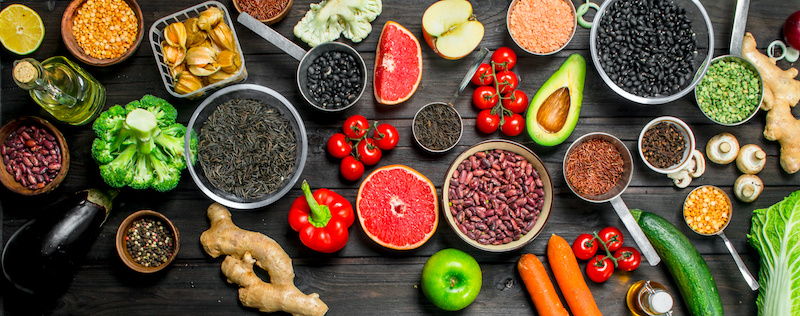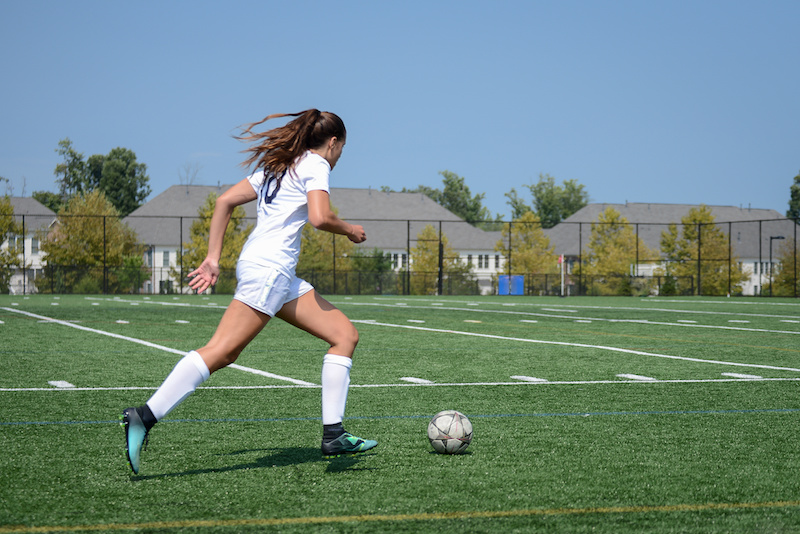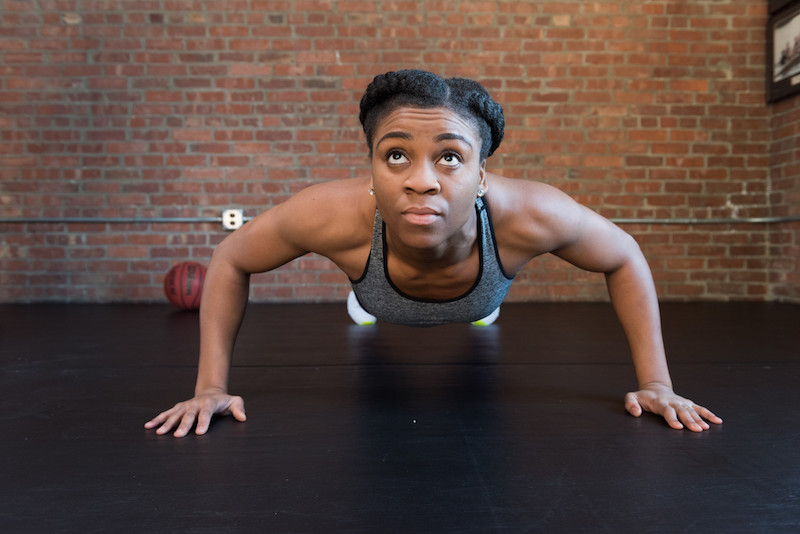Vegan diets for adolescent athletes: A sports dietitian’s perspective

Vegan diets have been in existence for years. However, they have recently made their way into the mainstream through the channels of social media, athletes, and celebrities toting the miraculous benefits of a plant-based lifestyle.
Vegan diet vs. other options
Although vegan diets are not new, the prevalence of them in our society appears to be growing by the day. Vegan diets are 100 percent plant-based and exclude any products containing or derived from animal-based products. A vegetarian diet is also plant-based but can include non-meat animal products such as dairy, honey, and eggs. An omnivore diet includes animal proteins, whereas a pescatarian diet is mainly a plant-based diet but also includes seafood, dairy, and eggs. So, how do we know which is the best lifestyle to choose: omnivore, pescatarian, vegetarian, vegan?
Vegan diets and energy shortages
As a sports dietitian with the Female Athlete Program, my focus is on ensuring that adolescent athletes are properly fueled and have a healthy energy balance to support optimal growth and performance. A negative energy balance or inadequate energy intake can have a negative impact on many systems in the body, including hormonal, bone health, psychological, and even blood systems.

Often, when someone chooses a vegan diet, they tend to focus more on the foods that they “cannot” eat, rather than focusing on the foods that they “need” to eat in order to make up for the nutrients lacking in plant-based diets. Animal proteins, including eggs, fish, beef, and poultry, are excellent sources of B12, iron, zinc, calcium, protein, and vitamin D. Removing these foods from the diet creates a void that must be filled in order to keep a body functioning and performing well. Deficiencies in these nutrients can lead to issues such as decreased bone density, muscle loss, fatigue, and decreased immune functioning.
Performance consequences
Aside from the negative health consequences of not getting enough energy, there are also significant performance consequences, such as decreased endurance performance, increased recovery time, and decreased training response. Vegan diets, although high in nutrient density, tend to be low in energy density. Athletes have elevated caloric needs that are quite difficult to meet on a vegan meal plan.
Extra planning and effort
Animal proteins contain all the essential amino acids in one food. Plant-based proteins are incomplete proteins. Different plant-based protein sources must be combined in order to form a complete protein. This can be done, but often requires additional planning and effort. For most of my high school athletes, having enough time in the day is often one of their biggest challenges. They are driven, ambitious, and time-deprived and simply do not have the time it would take to fulfill their caloric needs on a vegan diet.
Too much of a good thing?
Plant-based diets also tend to be very high in volume and fiber. Fiber is beneficial and necessary in the diet and it is recommended that we eat 25-35 grams per day. Individuals following vegan diets often double or even triple this amount. So, can you have too much of a “good” thing? Absolutely! High-fiber diets make you feel full quickly. For growing athletes, this can contribute to energy deficiency. High-fiber diets are also known to cause gas, bloating, and diarrhea. More than 35 grams per day of fiber can interact with protein and fat, and decrease the digestibility of proteins, carbohydrates, and fats. The decreased transit time which occurs as a result of a high-fiber diet can cause decreased absorption of calcium and other minerals.
A diet with too many risks
The bottom line is that an athlete considering a vegan diet should be aware of the potential risks of not having enough vital nutrients in their diet.

For adolescent athletes, who can be particularly vulnerable to the messages of social media and may not know how to execute a vegan diet properly, the risk outweighs the potential benefit.
In the Female Athlete Program, we work with athletes of all ages and abilities to help them meet their full potential. When one of our patients asks about switching to a vegetarian or vegan diet, we recommend the athlete meet with a registered dietitian to ensure they are covering all their nutritional bases.
If an athlete understands the risks and still feels strongly about a plant-based lifestyle, I encourage them to adopt a vegetarian diet. Vegetarian diets include eggs and dairy, which can support optimal bone growth and development. It also increases the variety of food choices available. A multivitamin may also be beneficial with any dietary restriction (including food allergies such as dairy or gluten).
Learn more about the Female Athlete Program at Boston Children’s Hospital.
A version of this article originally appeared on The Micheli Center for Sports Injury and Prevention’s website.

Laura Moretti, MS, RD, CSSD, LDN is a clinical nutrition specialist with the Female Athlete Program at Boston Children’s Hospital. She specializes in sports performance-based nutrition and works with young athletes experiencing low-energy availability and disordered eating. She is the co-chair for the Sport and Exercise Special Interest Group of the International Academy of Eating Disorders, an instructor at the Institute for Rowing Leadership, and the consulting dietitian for the Boston Ballet Company and Schools.
Related Posts :
-

Ask a sports medicine specialist: Why are ACL tears so common among female athletes?
When an athlete is sprinting after an opponent who suddenly stops or changes direction, their anterior cruciate ligaments (ACLs) make ...
-

Forging a path back to school after orthopedic trauma
Orthopedic trauma can force children to miss school, sometimes for an extended period. But even when patients have regained enough ...
-

Jackie’s dreams of playing professional soccer back on track after ACL surgery
From her dorm in Newcastle, England, Jackie Zapata can hear fans roaring in the soccer stadium a few blocks away. ...
-

What orthopedic trauma surgeons wish more parents knew about lawnmower injuries
Summer is full of delights: lemonade, ice cream, and fresh-cut grass to name a few. Unfortunately, the warmer months can ...





